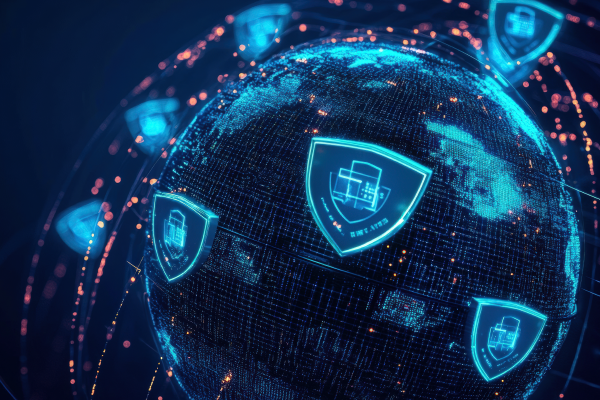Understanding the Future of Compliance
14-May-25
Compliance management is continually evolving. It’s now reached a point of significant transformation. Advances in AI, increasingly stringent regulations, and new governance frameworks are accelerating this shift. The future of compliance auditing will depend on how well organizations anticipate these changes. Upon identification, changes would be needed to align them with operational strategies.
Businesses need to focus on regulatory adherence and mitigate compliance risks. These aspects are key to staying ahead of shifts in compliance standards. But is that the complete picture? What does this new future of compliance auditing look like? Let’s find out.

With technological innovation at an all-time high, companies need to embrace these evolving and new practices in compliance auditing. The technologies that are making the most significant impact on auditing processes are:
AI and cloud technologies are enhancing core audit procedures across industries. Cybersecurity and GRC professionals must now incorporate these technologies into their workflows, as they have become increasingly essential. By facilitating risk management and compliance management, AI and ML technologies are actively improving the overall efficiency of compliance audits.
With the ability to conduct real-time monitoring, generate ESG data updates, and optimize workflows, organizations are beginning to give their employees back the time spent on basic or mechanical tasks like analyzing data and monitoring. By doing this, organizations are helping employees to free up time to work on more complex tasks, increasing organizational efficiency.
The evolution in blockchain development is also creating emerging opportunities for compliance auditing. It enhances transparency, efficiency, and transactional security. In specific use cases, it also enables decentralized, real-time data sharing among stakeholders and auditors.
One of blockchain’s unique aspects is its ability to provide immutable records. This can reduce the likelihood of errors and fraud. Smart contracts can also automate certain compliance checks in controlled environments. Businesses stand to benefit from this activity as it improves regulatory adherence. However, widespread use of blockchain in audits is still evolving. Often, it is limited to niche applications in sectors like finance and supply chain.
Newer fraudulent schemes are being uncovered. Each one is more sophisticated than the previous approaches. Hence, data analytics and continuous monitoring are often under the scanner in compliance audits.
All types of compliance audits, such as regulatory, internal, IT, environmental, and operational audits, are influenced by algorithms and deep insights. They act as sentinels to protect a company’s operational integrity from risks, regardless of fraud or noncompliance. Organizations must ensure their compliance engines run smoothly. To minimize errors caused by random timing or targeting, they should adopt continuous monitoring practices such as spot checks and automated alerts.
The integration of AI and ML tools has brought greater consistency and accuracy to compliance audits than ever before. AI has been essentially automating routine tasks like data collection, data analysis, risk assessment, finding insights, and reporting. This leaves auditors and businesses to focus on the more complex tasks. Moreover, the automation also significantly reduces manual errors in these activities. Risk management can be much more robust for businesses this way.
Continuous compliance is the future, and that is not a blanket statement. It highly validates the fact that a company’s adherence to regulations and laws is not limited to specific times of audits, and companies are vigilant towards compliance at all times.
With continuous auditing practices, auditing becomes much more nuanced and covers all bases to establish a company’s level of adherence. For example, auditors can leverage automation to monitor transactions and control processes in near real time, assessing scope periods for any inconsistencies or risks. This not only improves the standard of adherence for companies but also presents an opportunity for businesses to mitigate any potential risks before they occur.
It has become critical to protect data privacy and cybersecurity. To address this concern, here are the most important components that businesses must optimize:
Companies must build a robust safeguarding strategy for sensitive audit data. Unauthorized access or breaches are always waiting to happen with a lack of vigilance. Data is becoming more complex every day. As automation handles more routine tasks, auditors must develop strong analytical skills.
Compliance auditors must be in tune with all the updated guidelines from data protection frameworks like India’s Digital Personal Data Protection Act (DPDPA), 2023, as well as GDPR and CCPA, where applicable. All auditing processes must comply with applicable data protection laws and guidelines. This means that auditors must employ the best data handling practices and sensitive auditing data should be protected during and after audits.
Weak cybersecurity will lead to breaches and cyberattacks. With the growing sophistication of cyber threats, auditors should be equipped with relevant mitigation strategies to keep data protected. One can use multi-factor authentication, real-time monitoring, and advanced security protocols to ensure safe conduct during audits. Also, strong cybersecurity implementation frameworks such as ISO 27001 or SOC 2 can further streamline the process.
The transformation of the auditing landscape is now underway, thanks to newer and updated technologies constantly entering the market. Hence, auditors must keep up with the times. They need to develop new and relevant skills for competent and effective audits. Here are some ways to adapt to this change:
A key part of governance is also constant training. Auditors will need to become proficient in using, implementing, and understanding the implications of new technologies such as blockchain and AI. Using these tools will bring accuracy and reduce errors, refining the quality of audits and results.
As data becomes more complex every day and automation is widely adopted for routine tasks, auditors must train to develop strong analytical skills. They will be vital in the future auditing landscape to interpret and extract insights from complex data. The insights can be a gamechanger in a number of ways. It can help with risk evaluations, issuing ratings, and sharing actionable insights with businesses.
Technology continues to transform rapidly. Auditors must stay updated and adapt to the latest tools and practices. It also applies to constantly changing industry standards, regulatory updates, and best practices. Either way, compliance audits must be able to adapt to current industry standards. That’s how they will be able to generate reliable and actionable results.
The future of compliance auditing looks promising, with automation and emerging technologies driving its evolution. Real-time monitoring and reporting are already becoming the new norm. In such a scenario, continuous learning is no longer an option for auditors who want to stay at the top of their game.
Dun & Bradstreet, the leading global provider of B2B data, insights and AI-driven platforms, helps organizations around the world grow and thrive. Dun & Bradstreet’s Data Cloud, which comprises of 455M+ records, fuels solutions and delivers insights that empower customers to grow revenue, increase margins, build stronger relationships, and help stay compliant – even in changing times.

Gain your stakeholders confidence for increased business opportunities and establish your brand credibility.

Industry-leading data and analytics, integrated into a powerful AI-driven credit management platform

Consolidated Financial Statements - A powerful API that connects market-leading data and analytics to your enterprise applications.

An intelligent KYC/KYB monitoring and compliance decision making solution driven by Dun & Bradstreet's robust data and insights

Accelerate supplier evaluations, mitigate current and future risk, and improve business resilience all in one powerful supplier risk solution.